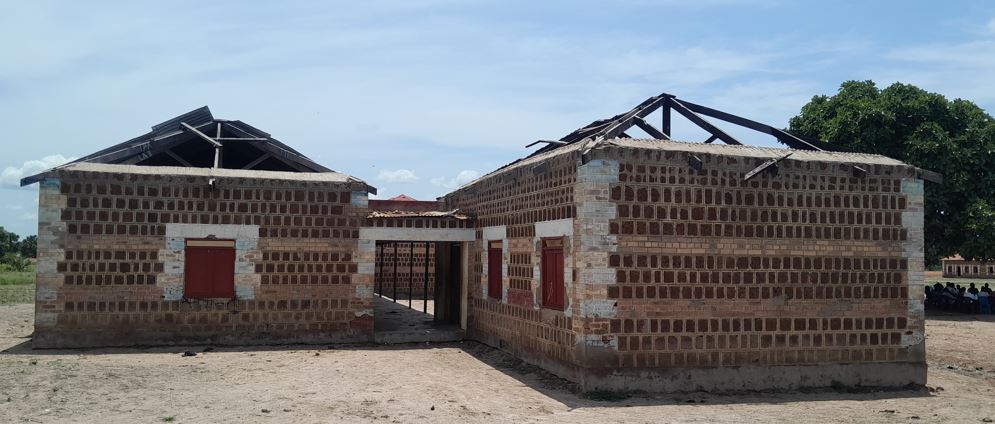The Marial-Bai Payam Community in Western Bahr el Ghazal State’s Jur River County has reached out to the United Nations Mission in South Sudan’s (UNMISS) Quick Impact Projects Program and other agencies to urgently intervene in renovating Marial-Bai Primary School whose roof was blown off by the wind.
According to the Payam Paramount Chief Lungar Majok Majok, the wind blew iron sheets off some of the classrooms in April leaving pupils exposed to rain.
“The wind affected the school in the dry season and blew off the iron sheets from the classrooms and the office of the headmaster,” he explained. “I informed the government but they have done nothing. So, I am now asking the NGOs to come and help my school because I am the head chief of Marial-Bai Payam.”
According to Chief Majok, pupils are now studying under trees which affects them when it rains.
For his part, Andrea Yel Yel, the school’s headmaster, said some of the pupils have now abandoned school due to the unbearable conditions when it rains.
“School attendance deteriorated when the wind blew off some of the roofs of the classes and one office in April. Some pupils have deserted the school and others are just resilient,” he stated. “As the headmaster, I took the report to the Ministry of General Education and Instruction at the state level, I also reported the case to the payam supervisor but nothing has been done.”
Yel added: “We always receive many organizations here and I tell them about the school but on Monday I told the organization called Agricultural Youth Action for Development Agency (AYADA) and they said they will forward my message to UNMISS to help us.”
Meanwhile, Marial-Bai Payam Administrator Santino Madut Mawien acknowledged that the school was in a bad state and said pupils are sharing the few habitable classrooms.
The community appealed to UNMISS on Monday through AYADA Executive Director Okello James during his field visit to Marial–Bai Payam.
The purpose of the visit was to conduct a community discussion on the role of traditional authority leaders, women, and youth on how they can mitigate local conflict related to pregnancies, elopement, forceful marriage, effects of such cases on girls and boys at school and also land-related disputes.
The discussion also focused on customary law structures at the boma, payam, and county levels and deliberated on how the powers of informal and formal justice systems can work collaboratively in resolving cases in communities.




